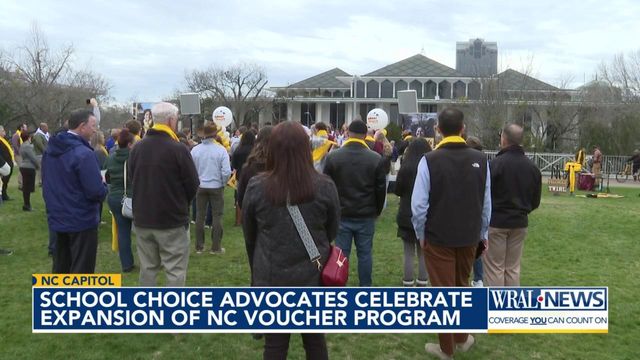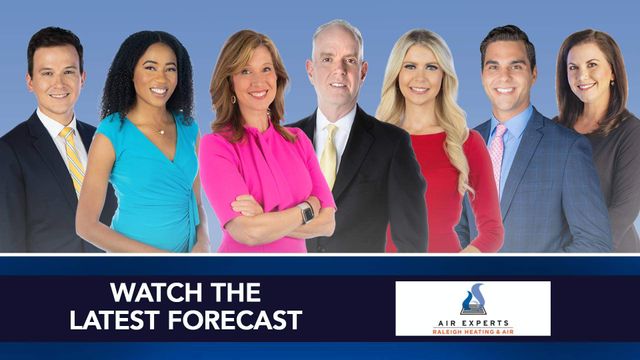NC's new universal school voucher program reignites funding debate
Parents and students from private schools gathered Wednesday in Raleigh to celebrate National School Choice Week – and to praise a change to the state's voucher program that public school advocates warn could gut funding to already underfunded schools.
At the school choice rally, North Carolina Superintendent of Public Instruction Catherine Truitt said it’s wrong to see private schools as the enemy of public schools.
“Being pro school choice does not conflict with being pro-public schools,” Truitt, R-NC, said. “It is natural for parents to want choice.”
More parents than ever will be able to cash in on that choice next school year. In 2023, state lawmakers abolished income limits for vouchers while more than doubling the funding for them, from $170 million to $400 million.
For the first time, any family can qualify to get taxpayer money to send their child to private school - no matter how wealthy they are.
For the 2024-25 school year, the lowest-income families can receive more than $7,000 a year for private or religious school tuition, while even the wealthiest will now be eligible to receive more than $3,000 a year.
North Carolina Senate Leader Phil Berger championed the change.
When asked by WRAL News how he accounts for giving taxpayer scholarships to rich families, Berger, R-Rockingham, responded, "They pay taxes, too."
The expansion of the state’s voucher program puts private and public schools at financial odds. Public schools are paid for largely by per-pupil funding. When a student leaves a public school for a private school, the public school loses the state funding for that student. Instead, the money goes into the voucher.
Berger, who also spoke at Wednesday's rally, said that’s appropriate.
“If the public school is not educating that child, why should they get the money for it?” Berger said. “All that's happening is that the money is following the child.”
A study by the North Carolina Office of State Budget and Management found the new universal voucher program could cost public schools as much as 8% of their funding over the next few years if even half of the new vouchers go to students currently enrolled in public schools.
At an event in Nashville Tuesday, Gov. Roy Cooper, D-North Carolina, called on state lawmakers to stop expanding vouchers every year and invest the money in public schools instead. North Carolina is already ranked near the bottom nationally for per-pupil spending.
“I am not against private schools, but I am against taxpayer money going to private schools at the expense of public schools,” Cooper said. “And that's exactly what is about to happen.”
Cooper noted that more than 80% of students in the state attend public schools.
"The future of our state goes to class in a public school, and we have to invest in that future," Cooper said.
Berger insisted every family should have an option when it comes to children's education. He said public schools aren’t the right fit for every student, and they should be able to take their taxpayer funding with them.
"It makes no sense whatsoever for someone to try to say with a straight face that just because a child leaves the traditional public schools, that the money ought to stay there," Berger said.











